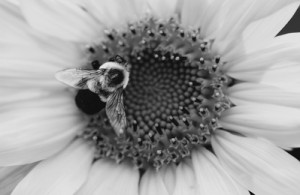Incredible insects
By Scott Stegenga
For the Courier
Early spring is a major transition time in nature. As the days lengthen and warm up, new life begins to emerge and stir everywhere.
One of the most notable changes is the increase in insect activity. Insects exist by the trillions. If we had a dollar for every insect in our country, our national debt would be wiped out with money to spare!
The number of species in just one order of insects can be mind-boggling. When it comes to diversity, no other animal group comes close. For example, there are more types of moths in the U.S. than bird species worldwide. For the most part, insects are not all that celebrated when spring arrives. We definitely take notice when butterflies start floating through the air again, but wildflowers and migrating birds are what most people seek out during April and May.
One reason insects are not all that popular is because of their small size. Many are so tiny or are hidden away somewhere that they are completely overlooked by most people. It seems we notice insects most often for negative reasons. Horse flies and deer flies bite, yellow-jackets and fire ants sting, termites and cockroaches invade our homes, aphids and caterpillars attack our plants, and mosquitoes not only bite and help themselves to our blood but can transmit disease.
When it comes right down to it however, only a small percentage of the 90,000-plus species in North American bite, sting or damage crops.
The majority of insects mind their own business, having no real direct, negative affects to humans, and many are actually quite beneficial. In terms of food chains, insects play a key role in the diet of many other animals, from fish to bears. Migrating birds rely heavily on the abundant supply of insects that hatch out or emerge in the spring. Some insects are important predators of other insects that cause harm. Others, such as certain beetles, serve as scavengers or decomposers of dead plant and animals.
The pollination of food crops is probably the greatest benefit certain insects provide that many people take for granted or may not even fully realize. If it were not for the numerous bees, wasps, flies, beetles, moths and butterflies that serve as pollinators, the world’s food supply would be in grave danger. There has been recent concern over the decrease in the honey bee population. Honey bees are prime pollinators for many types of fruits and other crops we depend upon.
True, we have to put up with some pests in their ranks, but there are many insects that deserve our appreciation and respect for the job they do in the ecosystem. Look around. Some insects are beautiful, some are repulsive, some are intimidating, and others are just plain bizarre. So the next time that praying mantis, dragonfly, or cicada crosses your path, think how incredibly diverse the family of insects really are and just how interesting they make the world around us.




























